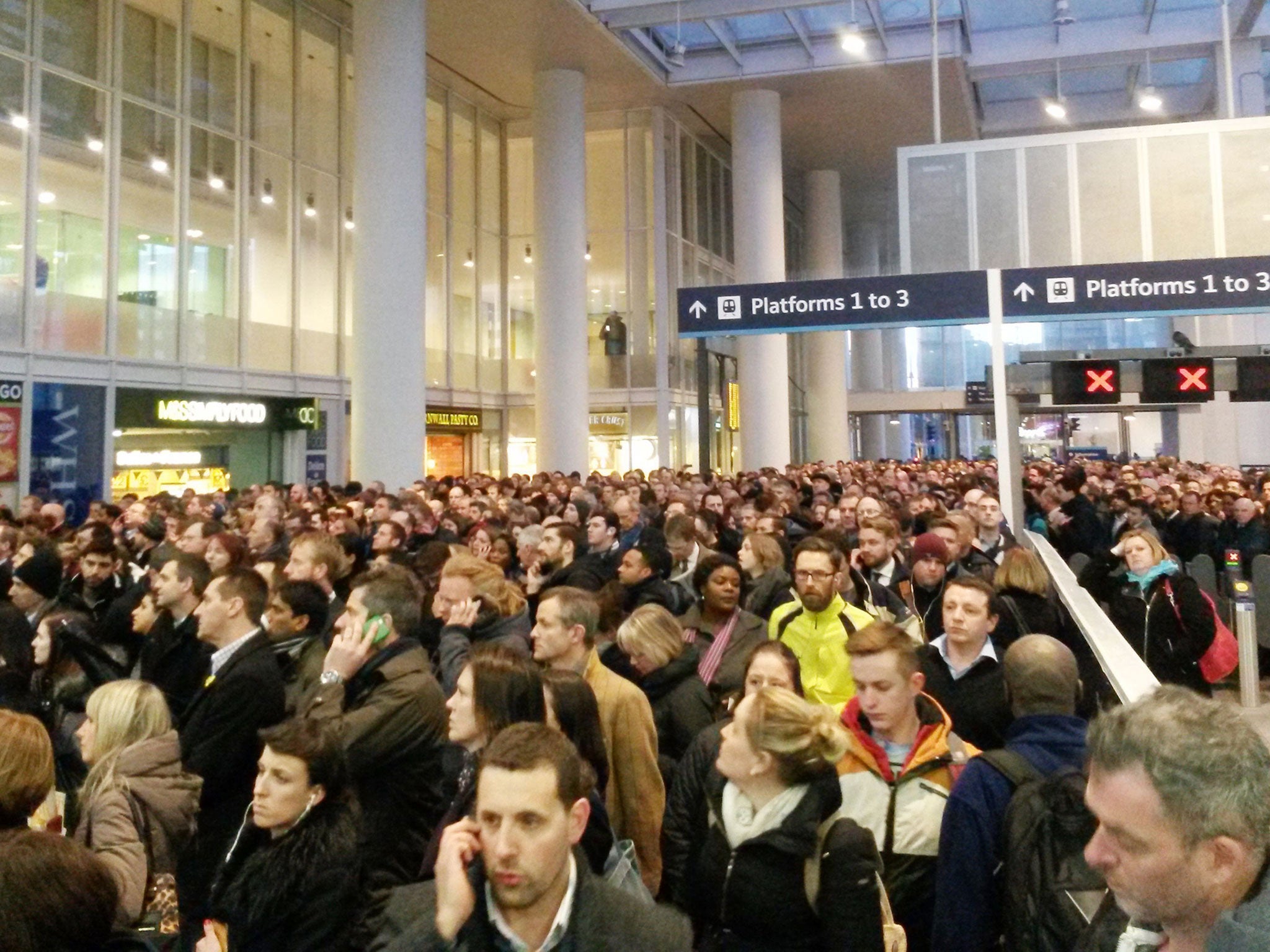Exclusive: Train stations could be hived off in plan to split up Network Rail
The organisation has been heavily criticised of late, with problems including commuter chaos at London Bridge

Your support helps us to tell the story
From reproductive rights to climate change to Big Tech, The Independent is on the ground when the story is developing. Whether it's investigating the financials of Elon Musk's pro-Trump PAC or producing our latest documentary, 'The A Word', which shines a light on the American women fighting for reproductive rights, we know how important it is to parse out the facts from the messaging.
At such a critical moment in US history, we need reporters on the ground. Your donation allows us to keep sending journalists to speak to both sides of the story.
The Independent is trusted by Americans across the entire political spectrum. And unlike many other quality news outlets, we choose not to lock Americans out of our reporting and analysis with paywalls. We believe quality journalism should be available to everyone, paid for by those who can afford it.
Your support makes all the difference.The private sector could end up managing 18 of the UK’s biggest train stations, including Birmingham New Street and Glasgow Central, under reforms being considered by ministers.
The Treasury is understood to be particularly keen on splitting up the Network Rail empire, which was in effect renationalised last year. The Independent has previously revealed that the Department for Transport is looking at forcing Network Rail to sell off its telecoms, such as providing wifi for passengers and transmitting signalling information to drivers. However, ministers are determined that Network Rail should focus on its core job of maintaining 20,000 miles of track.
The organisation has been heavily criticised of late, with problems including commuter chaos at London Bridge due to a disruptive station upgrade and a £53m fine for missed train punctuality targets as a result of maintenance overruns.
Network Rail also only narrowly averted a rail strike that was due to start today with a late revised pay offer, while there are concerns over a debt burden that could reach £50bn by the end of the decade.
As well as telecoms, which is likely to interest BT and Vodafone, Network Rail could be forced to bring in an energy utility or specialist provider to oversee its power supply. But outsourcing the management of its 18 train stations to a contractor such as Capita or possibly a property group, such as Land Securities, would be the most significant loss of prestige for Network Rail.
“There is pressure from the Treasury,” said an industry source. “They want to see what they can take out of Network Rail and they are looking at those three areas.”
Executives would be likely to fight some of the ideas. For example, some directors are understood to be furious at the DfT’s proposal to impose a special director on to its board. “Executives and non-executives hate the involvement of the department and think they can do a better job [without interference],” said a second industry source. A third source added: “Network Rail can fight, but at the end of the day they will have to accept the special director.”
The position of Richard Parry-Jones, Network Rail’s chairman, is thought to be under scrutiny, and the fact that the Transport Secretary, Patrick McLoughlin, is considering enforcing his right to a special director to keep an eye on executives illustrates his frustration with the organisation.
The Government’s devolution agenda could also see some of Network Rail’s already heavily regionalised budgets largely overseen by a swathe of elected mayors. Greater Manchester, which is only two years away from being granted an elected mayor, is understood to have been in talks over guiding some of the Network Rail budget as it will be given more powers over transport.
It has also emerged that Network Rail paid bonuses totalling nearly £60m for the year to 30 March to 35,000 staff. The operator said that because it missed a number of performance targets it paid 39 per cent of the potential bonuses pot, which can see senior staff such as engineers and managers receive up to 50 per cent of base salary and other staff collect up to £1,500. This year’s bonus pot is expected to be lower as more performance targets have been missed.
Join our commenting forum
Join thought-provoking conversations, follow other Independent readers and see their replies
Comments